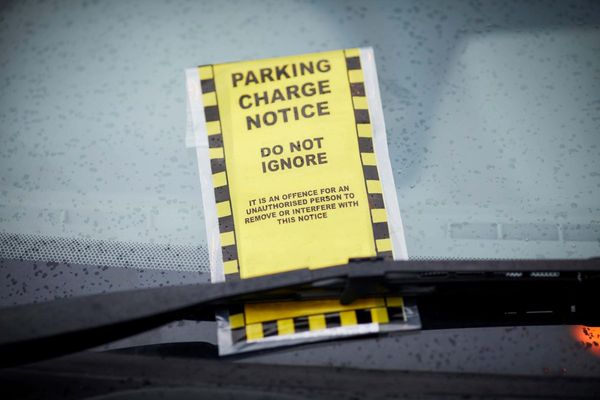TORONTO — Luz Lopez-Dee was on the brink of eviction years ago, when she missed a government letter that was crucial for her to receive pension payments.
The retiree was awash with nerves about how she would come up with rent, while she sorted out the stopped payments and cared for her husband, who had recently had a stroke and used a wheelchair.
But much of the B.C. woman's worrying dissipated when she discovered a rent bank that loaned her enough money to avoid eviction.
"When you are faced with a crisis, you feel like what will I do and where will I go? But knowing that there are available resources, when you need help was huge," she said.
Rent banks, like the one that helped Lopez-Dee, lend money and sometimes offer grants for low-to-moderate income earners at risk of eviction.
They have existed for decades, but in recent years, more have cropped up to keep pace with rising rent costs, the country’s constant struggle to combat homelessness and the ramifications of COVID-19.
Toronto has had a rent bank since 1998, while Manitoba launched one last year. BC Rent Bank, which supports a network of rent banks, began in 2019 in Prince George, Fraser Valley and Surrey, and expanded last November to cover every region in the province. Saskatchewan politicians are facing pressure to start a rent bank too.
The banks have different structures and offerings, but most operate through government or philanthropic donations and target low-income residents with short-term needs. For example, people who are having trouble coming up with that month’s rent or are already behind on payments but are due to start a new job or be paid soon are frequently a fit.
While some banks only offer grants, others focus mostly on loans that are typically interest-free.
Rent banks say the model makes their offerings more accessible than traditional bank loans and less predatory than payday loans because they offer reasonable terms and cater to those who may not have high credit ratings or meet other requirements set by financial institutions.
“We're really trying to help people avoid places like Money Mart and payday loans and those lending institutions that charge incredibly high interest rates and actually end up crippling people more than helping them in the long term,” said Melissa Giles,a project manager with the BC Rent Bank, which is operated by the Vancity Community Foundation and funded by the province.
Most people discover the rent bank, which she calls a "lifesaver," through local, non-profit agencies when they are in or approaching a housing crisis. After completing a pre-assessment about their housing and financial situation, a case manager explores whether they qualify for rent bank support or another assistance program.
To qualify for a loan, people must be at least 19 years of age, live in the province, earn a low or moderate income, demonstrate financial assistance will stabilize their housing beyond the immediate crisis and show they will have the capacity to make repayments.
Loans total up to $3,500 a month and require repayment within six to 24 months, Giles said.
Deferrals and postponements are offered if a recipient runs into more financial trouble, but they must be arranged ahead of a missed or late loan payment or they can result in non-sufficient funds charges.
“Sometimes we see people that are in a real temporary crisis… and they need something that helps them until maybe next month, when Employment Insurance kicks in or they're going to return to work,” Giles said.
“Some people come back in and pay it in a shorter period of time and some people need that full two year period.”
COVID-19 prompted many to apply for rent assistance in the early days of the pandemic, Giles said. However, many rescinded their applications, when government assistance programs launched and some provinces mandated rent freezes.
When Canada’s first Omicron cases appeared and the number of people infected with COVID-19 rose again, Giles saw 118 pre-assessments filed in a single day and 300 assistance applications made over a few days.
Don Nichols observed a similar phenomenon in December at the Toronto Rent Bank.
“We knew that with the COVID 19 pandemic, we didn't want to have undue financial hardship on people to have to think about paying back these loans right,” said Nichols, a manager of housing stability services and grants with the City of Toronto,which runs the rent bank with community organization Neighbourhood Information Post.
But the programs are about much more than money.
They deliver dignity and a helping hand when people need it most, said Lopez-Dee, who turned to a rent bank for a second time, after her husband died and bills were mounting.
The rent bank helped her get on her feet again and ever since, she's been spreading the word about it to anyone who will listen.
"You may not need it today, but who knows," she said.
"There's something available when you need it."
This report by The Canadian Press was first published Jan. 20, 2022.
Tara Deschamps, The Canadian Press






